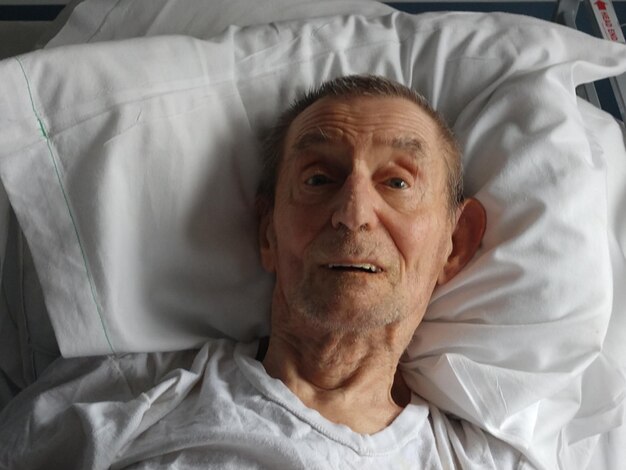Your Guide to What Is The Best Sleep Aid For Parkinson's Patients
What You Get:
Free Guide
Free, helpful information about Parkinsons FAQ and related What Is The Best Sleep Aid For Parkinson's Patients topics.
Helpful Information
Get clear and easy-to-understand details about What Is The Best Sleep Aid For Parkinson's Patients topics and resources.
Personalized Offers
Answer a few optional questions to receive offers or information related to Parkinsons FAQ. The survey is optional and not required to access your free guide.
Sleep Solutions for Parkinson's Patients: Discover the Best Remedies
Living with Parkinson's disease presents unique challenges, including how to achieve restful sleep. Sleep disturbances are common among those with Parkinson’s, ranging from insomnia to REM sleep behavior disorder. Navigating the best sleep aid can be daunting, but understanding your options is the first step to a peaceful night. Let’s explore the most effective remedies and associated financial assistance programs that can support your journey.
Understanding the Sleep Struggles
Parkinson’s disease often disrupts normal sleep patterns due to a combination of factors: changes in brain chemistry, symptoms like tremors, and effects of certain medications. Sleep disorders commonly experienced include:
- Insomnia: Difficulty falling or staying asleep.
- Excessive Daytime Sleepiness: Despite adequate sleep at night.
- REM Sleep Behavior Disorder: Acting out dreams, often violently.
- Restless Legs Syndrome: Uncomfortable sensations urging leg movement.
Identifying the root cause is crucial. Consult a healthcare provider experienced with Parkinson’s to tailor a sleep strategy specific to your needs.
The Best Sleep Aid Options
1. Medication
Various medications can help improve sleep. Melatonin is often recommended for regulating sleep-wake cycles. For specific cases like REM sleep behavior disorder, clonazepam has proven effective. Always discuss with your healthcare provider to choose medication aligned with your personal health plan.
2. Cognitive Behavioral Therapy (CBT)
CBT for insomnia (CBT-I) has emerged as a leading non-drug therapy focusing on changing thoughts and behaviors around sleep. This therapy helps patients manage sleep disorders through techniques such as:
- Sleep restriction
- Stimulus control
- Sleep hygiene education
3. Lifestyle Adjustments
Implementing healthy habits can make a noticeable difference:
- Consistent Sleep Schedule: Go to bed and wake up at the same time daily.
- Relaxation Techniques: Mindfulness, meditation, or gentle yoga to unwind.
- Sleep Environment: Quiet, dark, and cool room to promote restful sleep.
Financial Pathways and Support
Finding the right sleep aid can involve various costs, from medication to therapy sessions. Fortunately, there are programs and financial aids to ease the burden:
Exploring Financial Assistance
Medicare and Medicaid: These government programs often cover certain treatments and aids for Parkinson’s-related sleep issues.
Parkinson’s Disease Foundations: Organizations like the Michael J. Fox Foundation provide resources and sometimes financial grants for those in need.
Pharmaceutical Assistance Programs: Many drug manufacturers offer reduced-cost or free medications for those unable to afford them.
Educational Grants and Skills Training
For those navigating Parkinson’s later in life, educational grants and skill training programs offer new opportunities for career adjustments or passions, like:
- Vocational Rehabilitation Programs: Tailored for individuals with disabilities to gain employment skills.
- Educational Grants for Adults: Available for continued education or retraining in accommodating job roles.
Creating a supportive ecosystem with access to these programs can significantly light the financial load of managing Parkinson’s disease. Below is a handy summary of assistance programs available:
🗂️ Financial and Educational Assistance Highlights
- 📋 Medicare/Medicaid: Coverage for sleep-related treatments.
- 🎗️ Parkinson's Foundations: Grants and resources for medical costs.
- 💊 Drug Manufacturer Programs: Discounted/free meds for qualifying patients.
- 📚 Vocational Training: Skills development for new employment paths.
- 🎓 Adult Education Grants: Support for career change or further education.
Navigating the world of Parkinson’s and sleep can be complex, but understanding available treatments and financial supports empowers patients and families to pursue restorative sleep and improved quality of life.
What You Get:
Free Parkinsons FAQ Guide
Free, helpful information about What Is The Best Sleep Aid For Parkinson's Patients and related resources.

Helpful Information
Get clear, easy-to-understand details about What Is The Best Sleep Aid For Parkinson's Patients topics.

Optional Personalized Offers
Answer a few optional questions to see offers or information related to Parkinsons FAQ. Participation is not required to get your free guide.


Discover More
- Are There Environmental Causes Of Parkinsons
- Can Alcohol Cause Parkinson's
- Can Concussions Cause Parkinson's
- Can Concussions Cause Parkinson's Disease
- Can Dogs Get Parkinson's Disease
- Can Dogs Get Parkinsons
- Can Dogs Have Parkinson's
- Can Dogs Have Parkinson's Disease
- Can Females Get Parkinson Disease
- Can Head Trauma Cause Parkinson's
